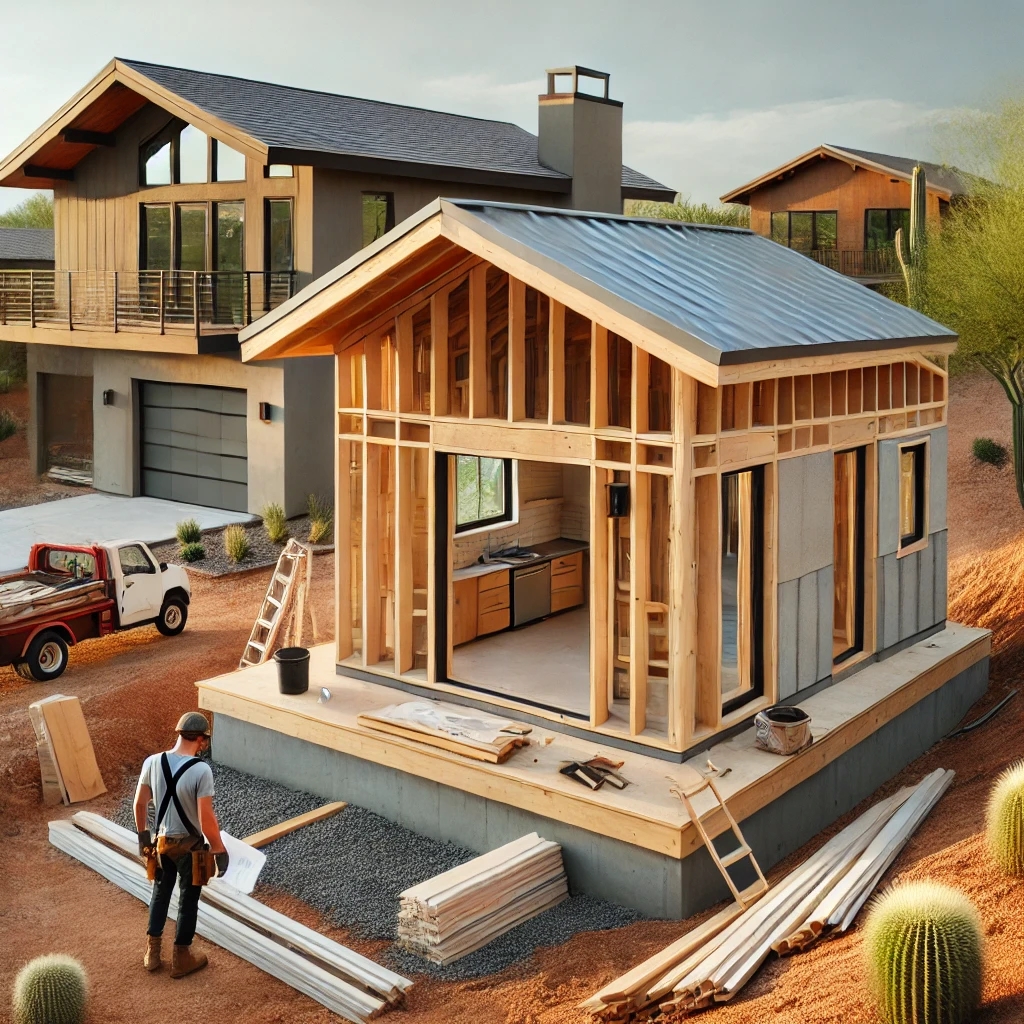Arizona’s New “Casita Bill” Changes the Rules for Homeowners and HOAs
The way Arizona cities regulate Accessory Dwelling Units (ADUs) is about to change in a big way. Starting in 2025, homeowners in major cities will have the legal right to build guest houses, in-law suites, or rental units on their property—whether their HOA likes it or not.
This shift comes from Arizona House Bill 2720 (HB 2720), also known as the “Casita Bill,” a new law aimed at addressing Arizona’s housing crisis. While supporters see it as a game-changer for affordable housing, others worry about zoning conflicts, neighborhood overcrowding, and potential legal battles.
So what does this mean for homeowners, builders, and HOAs? Here’s what you need to know about the new Arizona Revised Statute Section 9-416.18—and what legal challenges could be ahead.
What Does HB 2720 Change?
Arizona’s housing market has been under pressure due to rising demand and limited affordable housing options. HB 2720 seeks to ease this crisis by allowing attached and detached ADUs (such as backyard casitas or converted garages) in residential areas. The goal? More housing options without large-scale developments.
Key Provisions of the “Casita Bill”
- Major cities must permit ADUs – Any Arizona city with over 75,000 residents is required to allow accessory dwelling units on single-family home lots starting January 1, 2025.
- Homeowners can build attached or standalone units – Whether it’s a backyard casita or a converted garage, both detached and attached ADUs are now fair game.
- Urban areas get priority – The law encourages higher-density housing by focusing on properties within one mile of downtown districts, making it easier to build in walkable, central locations.
For many homeowners, this means a chance to increase property value, generate short term rental income, or create additional living space for family members. For cities, it’s a way to address housing shortages without expanding urban sprawl.
Potential Legal Conflicts and Construction Lawsuits
While this law creates opportunities, it also raises significant legal questions—especially for homeowners’ associations, contractors, and municipal zoning boards.
How Will HOAs and Cities Respond?
Historically, HOAs and local zoning boards have had the power to restrict ADUs. Now, with HB 2720, some of those restrictions may no longer hold up. Expect legal battles over:
- HOA covenants vs. state law—Can existing HOA rules still prohibit ADUs, or do homeowners now have the upper hand?
- Zoning variances—Cities must adapt to the law, but how quickly will they update their building codes?
- Permitting disputes—Some municipalities may delay approvals or impose additional restrictions, leading to legal challenges.
Construction Lawsuits & Compliance Risks
For builders and contractors, the new law introduces compliance risks. Construction lawsuits may arise over:
- Disputes between homeowners and HOAs over ADU approvals.
- Zoning conflicts if local laws don’t align with HB 2720.
- Liability issues if ADU construction fails to meet new legal standards.
Given these complexities, homeowners, developers, and contractors need work with experienced construction lawyers to avoid costly mistakes.
How RSN Law Can Help with the New “Casita Law”
With decades of experience in Arizona construction and real estate law, RSN Law is ready to help you navigate these legal changes. Whether you’re a homeowner, builder, or HOA representative, we offer expert guidance on:
- Homeowners & HOAs – Understanding legal rights and challenging restrictive covenants.
- Builders & Contractors – Reducing liability and ensuring ADU projects meet all legal requirements.
- Developers & Investors – Navigating new zoning laws and protecting investment interests.
Are You Ready for Arizona’s New ADU Law?
Whether you’re looking to build an ADU, challenge HOA restrictions, or avoid legal pitfalls, RSN Law is here to help. Our team specializes in Arizona construction litigation, zoning disputes, and real estate law, ensuring you’re protected in this rapidly changing landscape.
Call RSN Law today at 480-712-0035 or use our contact us page to schedule a consultation before the new law takes effect.

